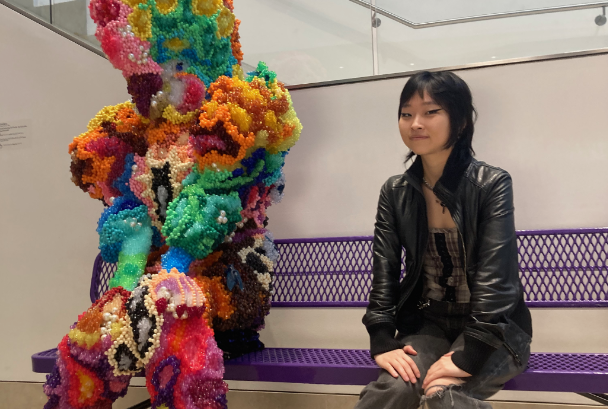
Entering art history and museum studies with intellectual curiosity and passion, Haena Chu has merged academic excellence with transformative experiences. With a B.A. in Art History and Cultural Anthropology from Columbia University and an M.A. in Museum Studies from NYU GSAS, she has a profound understanding of art's cultural and historical contexts. At institutions like the Rubin Museum of Art and Art Center Nabi, Haena has demonstrated her skill in curating meaningful exhibitions and engaging with global art narratives.
Early inspirations and academic pursuits
Haena's fascination with museums began in her childhood in Korea, leading her to pursue art history and museum studies. Reflecting on her time at Columbia University, she notes, "In the huge museums of New York, Asia, especially Korea, occupied one tiny corner that never got the crowds comparable to the European paintings or Egyptian wings." This dedication to global contemporary art led to her Master's in Museum Studies, honing her critical rigor for a dynamic career.
At Curina, her initiatives raised significant funds for charitable causes, showcasing her adaptability and social awareness. "I believe that art should always remain rooted in people's collective experiences," she explains. At Art Center Nabi, she created an interactive website for "Party in a Box" to address social issues in Korea during the pandemic, demonstrating her innovative approach to integrating technology and art.
Crucial research contributions and insights
Haena's thesis, "Lab Cultures: Using and Speculating Science in Laboratories of Contemporary Art," explores the intersection of art, technology, and social values. "Museums are not neutral spaces, and neither is science," she explains. Supported by the Museum Studies Thesis Travel Award Grant, her research at ZKM in Germany and Pioneer Works in Brooklyn connects scientific models and social values. "Using the grant, I was able to access the institutional archive of ZKM," she notes.
Her thesis on Korean artist Lee Bul, awarded by Columbia University, addresses Asian art, cyberfeminism, and Korea's political climate. "I felt this strong sense of shock and disillusionment that came with the president's abdication... a kind of historical trauma," she reflects. Influenced by cultural anthropology, Haena examines trauma and audience interaction, deeply exploring art's sensory and emotional impacts.
Technology and global art narratives
Reflecting on her role in curating "Reimagine: Himalayan Art Now" at the Rubin Museum of Art, Haena clarifies she was a curatorial assistant, yet her contributions were substantial, stating, "My continued interest in diasporas and global exchange fit the mission of the exhibition perfectly." She was the first contact for over 30 artists from diverse backgrounds, navigating various communication styles and museum processes.
Discussing technology in museums, Haena emphasizes human biases in tech tools, noting, "In reality, it's human beings that invented the very laptop, the browser setting, and the font you're reading this text in." She advocates for lo-fi technologies like 3D printing and improved UX for digital archives over high-fidelity tech like AR/VR. "It's counterproductive to focus on high-fi technology for the sake of how new and groundbreaking it is," she states, concluding, "Technology is nothing in itself—it's just a tool."
Addressing pressing issues in museum studies
Haena emphasizes the importance of Diversity, Equity, Accessibility, and Inclusion (DEAI) in museum studies. "We are at an important stage where there is now a shared recognition that wage gap, lack of diversity in staff, and misrepresentation of artists' identities must be addressed," she notes.
Her research on diaspora artists like Lee Bul challenges superficial diversity efforts, emphasizing the importance of listening to artists' experiences. "I do so by reading between the lines, not taking the appearance of an exhibition as is but considering whose labors went into physically creating the exhibition," she explains. Haena aims to bridge the gap between museum workings and DEAI expectations, ensuring artists' experiences are authentically reflected and audience interactions have tangible impacts.
Fostering global artistic voices
Spokes Art is another one of Haena's projects. Inspired by her work on a catalog for Korean diaspora artist Kang Seung Lee, she says, "It reaffirmed the passion I have for amplifying global artists' voices by paying attention to their culturally specific experiences, intentions, and references."
Spokes Art aims to provide long-term career support for immigrant and diaspora artists, enhancing their skills and opportunities through exhibitions, residencies, and grants. Haena also hopes to foster a team who can go on to spread best practices for other organizations to adopt a healthier culture of diversity and inclusion.
Haena's journey in art history and museum studies blends scholarly rigor, cultural empathy, and innovative vision. Her research and professional achievements highlight her role as a thought leader, bridging academic scholarship and public engagement. As she pioneers new projects and tackles pressing issues, Haena's work promises to inspire future generations of artists and curators.









